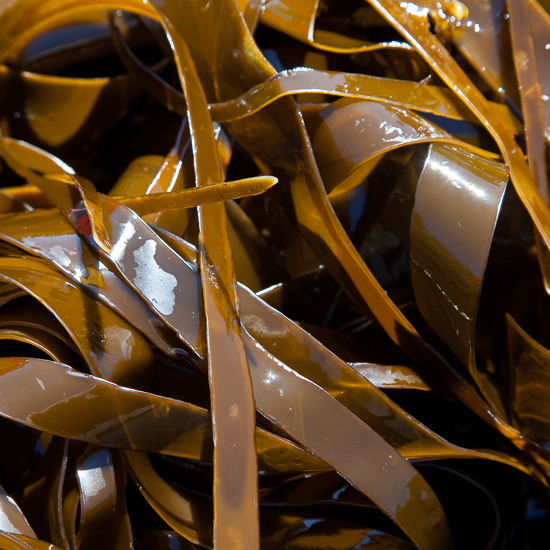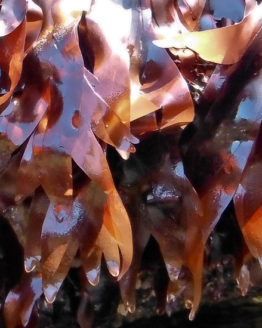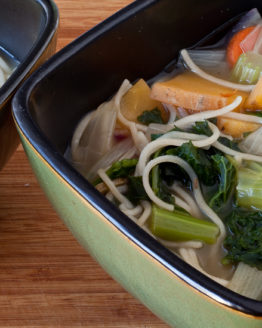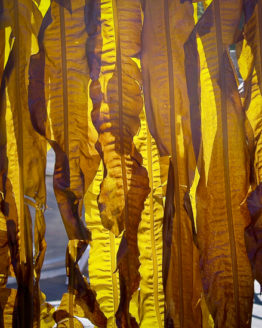Description
Digitata Overview
Digitata kelp grows in the most turbulent surf conditions, just below the alaria zone. Even on a flat calm day, there is movement in a digitata bed. Harvesting digitata kelp from a low-sided boat is a bit like playing rodeo. Grab the plant below the many-bladed frond (just hold up your hand and imagine your hand is the frond and the short stipe is attached at your wrist) and hang on tight! while you saw away at the stipe with a serrated frozen food knife wrapped and bound with old wetsuit material so it’s easy to grab and will float. Sometimes I feel my shoulder tugged in its socket, just like the cowboy hanging on to the lasso, roping calves. In my case, I have to watch out for breaking waves that can sink my boat. I’m playing at the edge of breakers, all the time. When the little eight foot boat is full (about eight bushels), I row back to the container boat and transfer the load. On a good new moon tide (a tide that goes out a foot lower than average low water), I will manage to do this five or six times.
Because digitata grows in such turbulence, it is not damaged by snails. As the summer goes on, digitata becomes sweet with mannitol sugar, and sometimes this sugar comes to surface as the plants dry. Not many plants can remain sweet without succumbing to pests. I admire digitata kelp for maintaining its own gentle sweet nature in a world of turbulence. May we all be so.
Digitata Basics
If I had to choose one variety of kelp for my kitchen, I would choose digitata kelp. This may be substituted into any recipe calling for kombu, for digitata’s cooking qualities are much the same. Reconstituted and cooked for fifteen minutes, digitata behaves like a vegetable and becomes softer. Cooked for an hour or more, digitata creates a delicious creamy soup stock that the Japanese would call dashi. Just add ginger and tamari. The alginates that are released from the digitata through long cooking are able to bind (chelate) with the large molecules of heavy metals and radioactive isotopes and remove them from the body. Moreover, digitata contains iodine which nourishes and protects the thyroid so that it will not absorb radioactive iodine. My skin always gets softer when I handle digitata which is oozing with slippery alginates. Its softening effects on the body are obvious.





